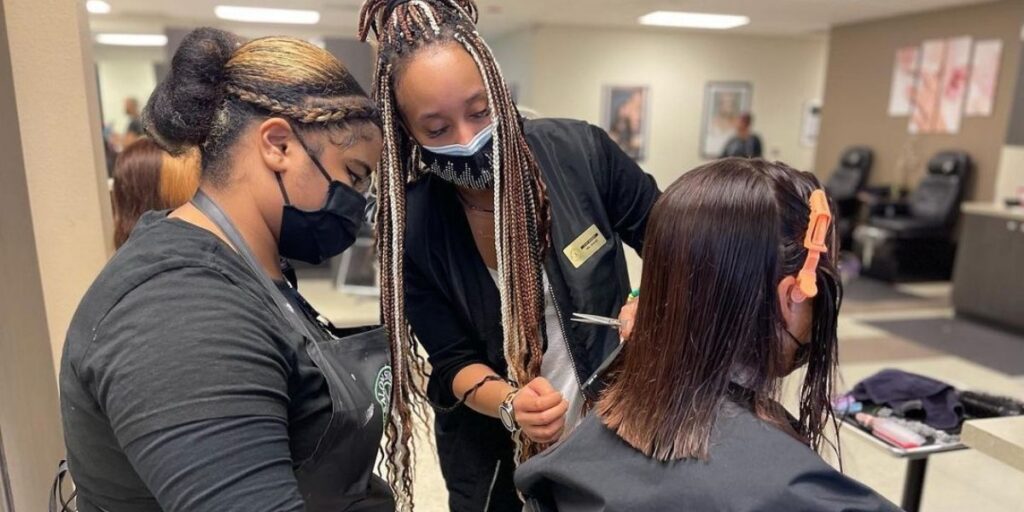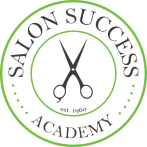December 1, 2021
What Does SB 803 Mean for The Beauty Industry?

Recently the Senate Bill 803 was signed into law in California, which means we’ll start to see changes happening within the beauty industry. But what exactly does this bill mean and how will it affect beauty students? We’ll go over everything you need to know about SB 803 and the changes we’re making with this new bill.
What is SB 803?
SB 803 has sparked some controversy since being proposed. However, it has recently been signed into California law and the provisions will become effective at the beginning of January 1, 2022.
The bill would amend the Barbering and Cosmetology Act, proposing substantial changes to licensing requirements. Which will change the process in which students receive licensure. Some of the most notable changes are:
- Reduce cosmetology and barbering programs to a minimum of 1,000 hours
- Removes practical examination, therefore eliminating the pre-application process
Before this change, cosmetology students were required to do 1600 hours in an approved school, pass the National Interstate Council (NIC) written exam, and pass the practical examination. While the minimum of hours has lowered, institutions can still require up to 1,500 hours in order to receive your license.
Pros and Cons to SB 803
A lot of the controversy surrounding this bill comes from the removal of the practical exam. Beauty professionals argue that removing the exam is a step in the wrong direction because we work in a hands-on industry. For us, we see both pros and cons to this change.
Practical Exam Removal Pros
The pros to the removal of the practical exam are that it was administered in only two locations in the entire state of California. Before, students would have to make a long drive and prepare travel arrangements to take their exams. They would also need to prepare or rent a student kit to take the practical exam. Students will no longer have this travel or financial barrier in order to receive their license.
Practical Exam Removal Cons
The con is that the average California state pass rate for the written exam is below 65% in all programs. Typically, students pass their practical exams at a much higher rate. However, with a written exam only, students can take their exam at multiple different sites throughout the state. Meaning they’ll be able to retake it faster if they do not pass. There will also be a price reduction for the exam.
How Does SB 803 Effect Transferring Licenses Between States
The reciprocity laws have changed for beauty professionals wanting to come to California. It will now be a license for license transfer. If you have a cosmetology license from another state, then you will be able to transfer it directly without needing any additional hours or having to take the California exam. Transferring a California license to another state, however, would depend on the state laws you are wanting to transfer to.
For students looking to transfer hours to a different school, that depends on the school’s transferring process. If you’re wanting to transfer your hours, be sure to talk to one of your school’s representatives for more information.
How Will Salon Success Academy Adapt to These Changes?

Because of SB 803, we will be making some changes to our cosmetology, barbering, and esthetics programs regarding their requirements. The following changes will be made to our programs:
Cosmetology: When able, we will be applying to have the program hours to our cosmetology program reduced from 1600 hours to 1200 hours. We feel that 1200 hours allows for students to successfully learn all the program requirements.
Barbering: When able, we will be applying to have our barbering program hours reduced from 1500 hours to 1000 hours. We feel that this allows us to focus on the information needed to be proficient in the career field.
Esthetics: For our esthetics program, we will not be changing the hours. However, our scope of practice will change. Our esthetics students will now learn theory for coloring eyebrows and eyelashes as well as lash lifting and brow lamination*.
*It is worth noting that the FDA has not approved any product from these services that are deemed safe to perform on the public. This is not a service that you can have liability or malpractice insurance on and therefore would be personally liable if harm or bodily injury occurs. Because of this students will learn theoretical information but will not practice the service.
Even with these changes, we are still dedicated to providing our students with a high-quality education. We are committed to helping you achieve your career goals and can provide you with the academic and personal support you need in preparation to complete your program.
Can Students Still Transfer from Other Schools?
Yes, of course! Students will be given the option to transfer any credits/hours they have earned from their 1500-hour or 1600-hour program to our new programs. A careful evaluation of hours and competencies completed versus required hours must be completed by the school first. Schools must ensure and document that students will have completed all required hours and competencies at the time of completion of the new lower-hour program in order to be eligible for licensure.
It’s also important to note that although a student might have reached the minimum “clocked” hours, they will need to have also met the updated curriculum requirements set forth by the State Board. For students receiving Financial Aid*, an evaluation/recalculation will be done to determine updated eligibility.
Have Questions? Get in Touch!
We understand that there are a lot of changes happening, which naturally bring confusion. If you have any questions about SB 803, our programs, financial aid, or other things concerning these changes, please don’t hesitate to reach out. We’d be happy to answer any questions you may have!
*Financial aid available to those who qualify

